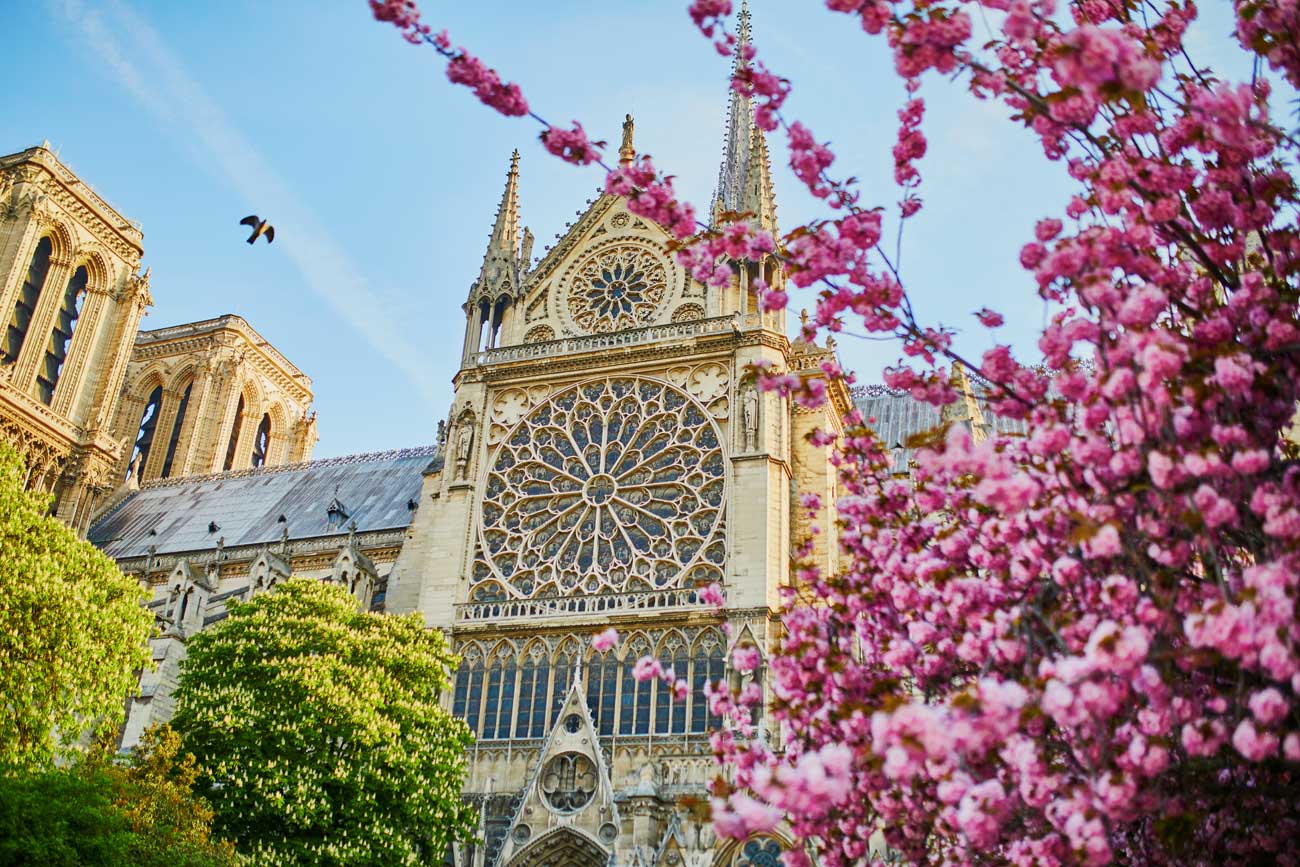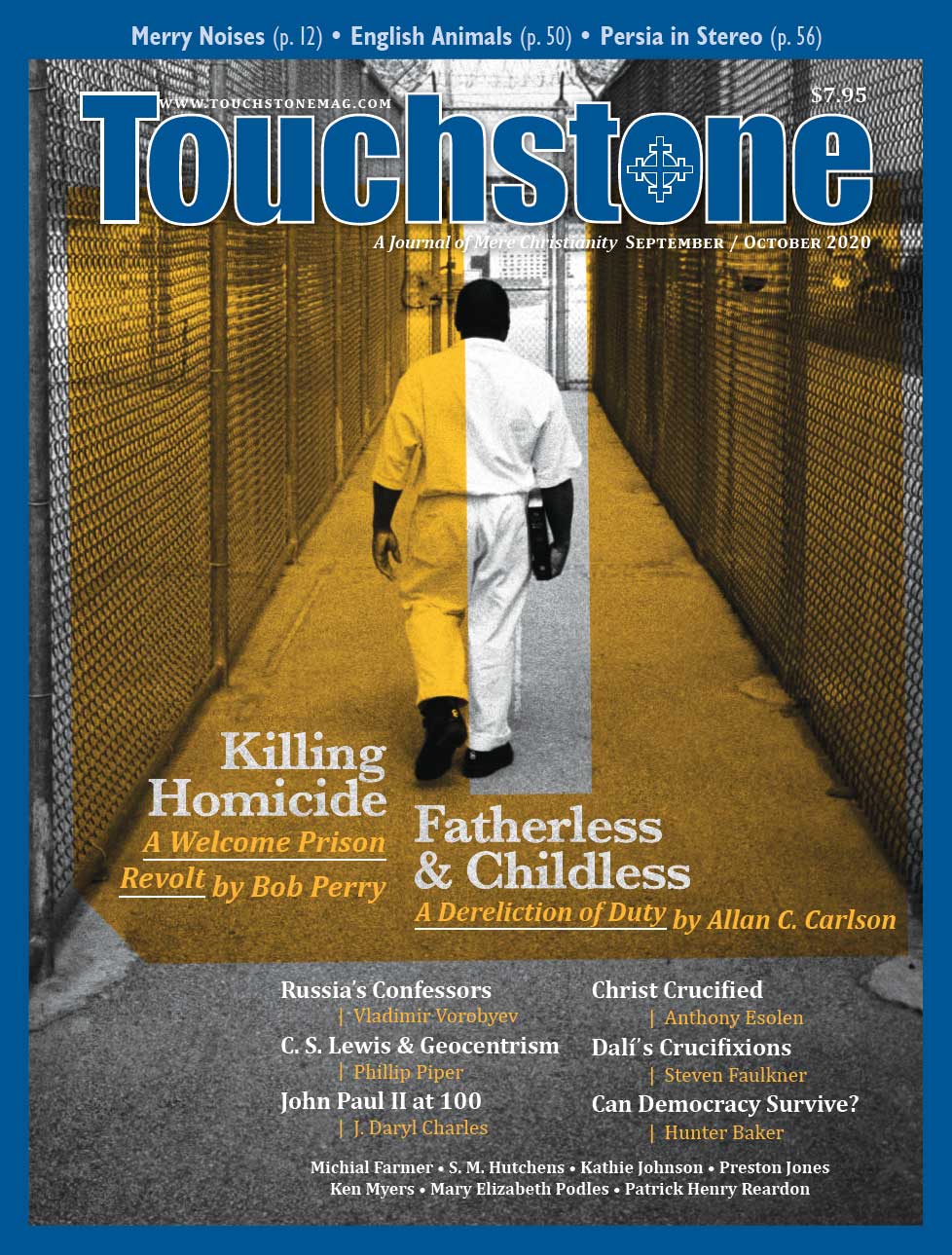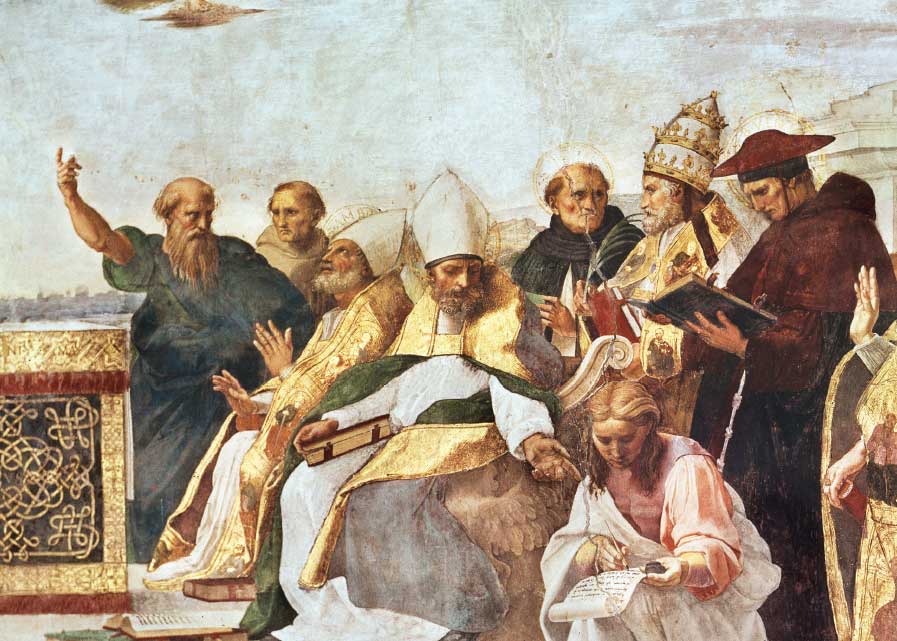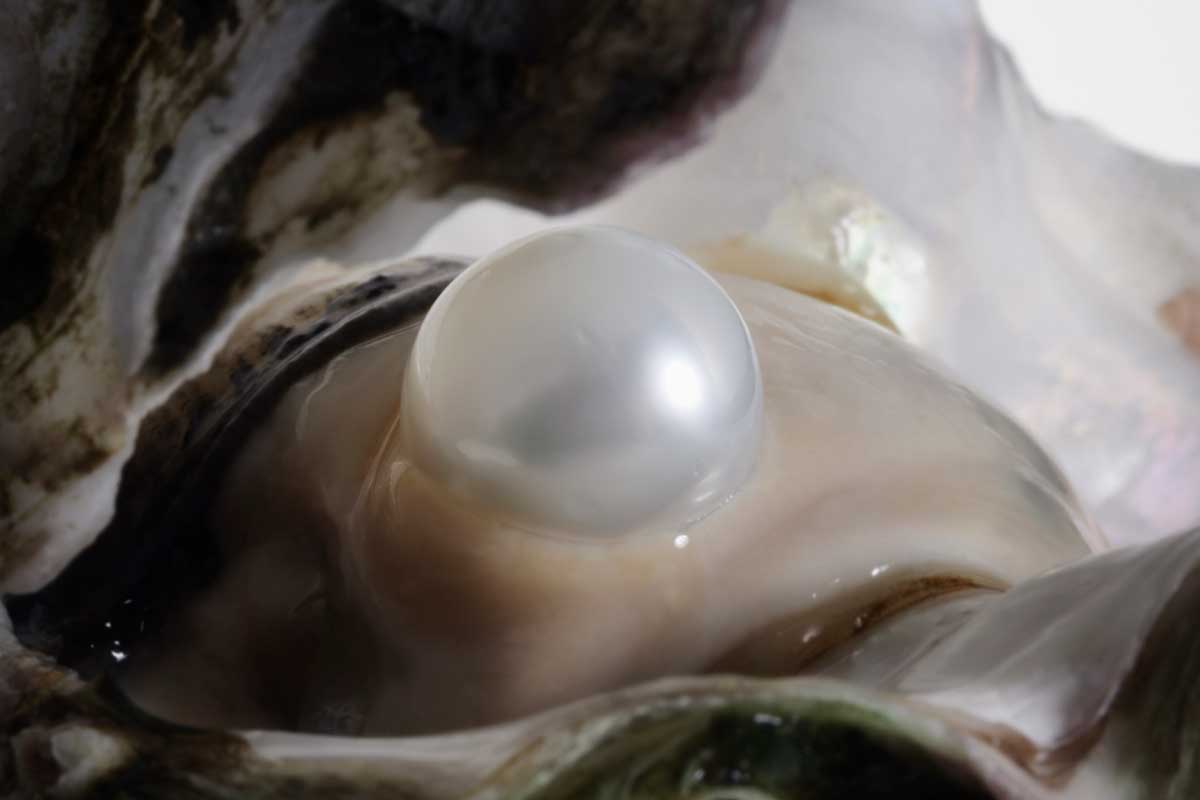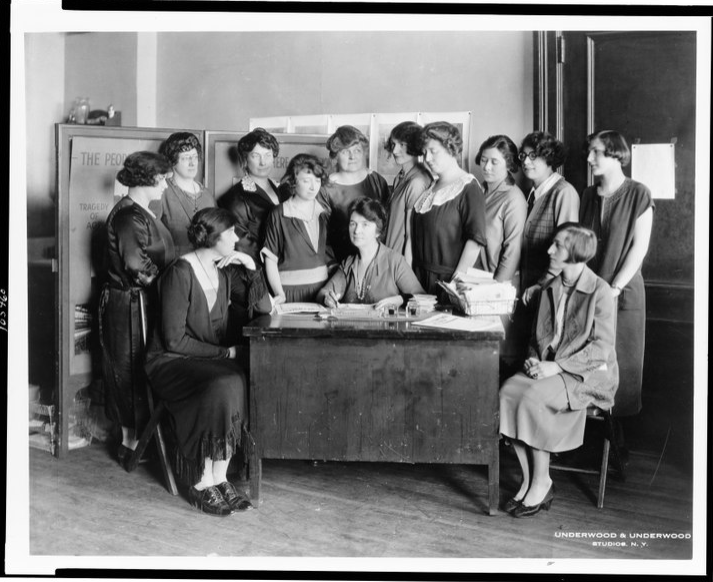View
Much Higher Education
Michial Farmer on Christianity & the Soul of Liberal Arts
Last year Santa J. Ono gave a speech defending the liberal arts from their pragmatic despisers. Humanists are used to these speeches, perhaps, but this one came from an unlikely source: Ono is the president of the University of British Columbia and thus in a position to do something about the flagging popularity of the liberal arts; even more surprisingly, he is a scientist, a very successful biologist, who spent decades researching and teaching genetics.
At least since C. P. Snow's famous 1959 lecture, "The Two Cultures," we've been accustomed to thinking of the sciences and the humanities as, if not outright enemies, then at least unfriendly colleagues. Certainly it's refreshing to hear a scientist defend the liberal arts, beginning with the (shockingly uncommon) recognition that when we talk about STEM, we're almost never talking about the pure sciences. Technology and engineering are the true Princes of the Age, as Walker Percy once called scientists.
The Point Missed
Ono's speech, interspersed with clips of an interview, was broadcast by the CBC in January 2020. Though winsome and insightful, something about it leaves a bad taste in my mouth. In his speech, Ono talks about the devastating fire at Notre Dame cathedral, which "the world watched in horror" in April 2019. He claims that the liberal arts, "philosophy, religious studies, history, architecture, art history and more," can help us understand why so many people cared so much and how the cathedral ought to be rebuilt. In the interview, Ono talks about his own experience of Notre Dame:
I was personally horrified, because I've been to that beautiful cathedral several times, and I've spent many hours looking at the stained-glass windows that are absolutely stunning, thinking about the history—how long it took to build it. It took a very, very long time. About some of the architectural innovations that are captured in that. I thought about the history of France, but also all of Europe at that time—how much it means as an iconic landmark of Paris. I thought of the almost innumerable number of visitors and tourists who've come to see it and who have been inspired by its beauty. So I thought about all these sorts of things.
Nothing he says here is untrue, and nothing he thought about that day wasn't worth thinking about. And yet something essential—the essential thing—about Notre Dame was left out of his formulation: the cathedral is a house of worship, before and after it's a tourist attraction and a national symbol. Everything Ono loves about Notre Dame springs directly from that purpose: its beauty is there to call our hearts to heaven; its "architectural innovations" were undertaken for the glory of God (many of them could not even be seen until the advent of helicopters, because they were put there for God alone to look at); and the workers who spent decades building it didn't do it for the benefit of tourists but for the benefit of worshipers. I'm reminded of Walker Percy, whose novel The Second Coming features a self-satisfied humanist who reads The Divine Comedy for its mythic structure: sure, that's there, but you're missing the point.
A Crueler Mistress
The point is that the liberal arts have a vertical dimension, the absence of which leaves them a caricature of their true selves. If we (think we) understand a religious work on purely human terms, we fail to understand it. This explains, in part, why the liberal arts are in so much trouble to begin with: having been stripped of their vertical dimension, they are increasingly unable to explain the world and to justify their existence.
Notre Dame was constructed in a relatively cohesive era, one in which architecture, art, poetry, history, philosophy, and yes, the natural sciences, were brought together like a bouquet for the glory of God. When Thomas Aquinas famously called philosophy the "handmaid of theology," he could just as easily have been talking about every other discipline. But theology is a benevolent mistress, and despite the demeaning claims of the Renaissance, the High Middle Ages were a time of enormous flourishing for any number of other disciplines. Today, to the extent that universities have a mistress, it is the STEM fields, which are much crueler and given to tossing their handmaids out into the street.
Still worse, the universities, lacking any ultimate purpose, give themselves over to purely financial considerations. I suspect that most people who study computer science don't do so out of a deep love for computer science but out of the belief that a degree in computer science can land them a high-paying and stable job. I don't blame them for having that motivation. The social forces that have professionalized the American university have been so successful that it's almost unthinkable for an eighteen-year-old to go against them. Even most defenses of what I like to call the impractical disciplines have to start with job prospects, and that is why they usually justify the liberal arts (and, as Ono notes, the social sciences and, increasingly, the non-applied sciences, too) by appealing to their ability to instill "critical-thinking skills" in students—a phrase so vague that I'm not really sure what it means.
My point is not to argue with employment statistics. It's simply to state that when we begin our defense of the liberal arts by referring to them, we've already given away the store. We've agreed, to shift metaphors abruptly, to play on their ground. We've agreed that every discipline is the handmaiden not of theology (the most impractical of all!) but of the applied sciences, which are themselves the handmaidens of utilitarian and economic interests.
A Paltry Defense
So I appreciate Ono's attempt to set up the liberal arts as a counterforce to these trends and forces. The problem is that, once stripped of their vertical dimension, the liberal arts aren't robust enough to stand up to Washington and Silicon Valley. They'll either be co-opted by those forces, or be mown down by them like the Belgians trying to keep German forces out of France in 1914. Ono suggests that the liberal arts teach us to value what is "beautiful, elegant, or romantic," which is true, but tech billionaires and politicians will surely see this idea as untenably squishy.
If the liberal arts can't say that they somehow give us access to the truth of the world—the metaphysical truth, since applied science imagines that it has a monopoly on the physical truth—I don't see what place they'll be able to carve out for themselves. Arguing pragmatically leads us to a sort of quietist bargaining, which Ono indulges in near the end of the interview. The liberal arts, he claims, played a valuable role in America's actions at the end of World War II:
There was a conversation that occurred, that's pretty well-known, about which cities in Japan should be the targets of atomic bombs, and which cities should be the targets for carpet-bombing. And there are many ways in which you can make those decisions in that kind of situation. One involves what kind of industries are in those cities, and where might be the biggest threat to the other nation.
But the well-known story is that there was a general, I think, if I remember correctly, that said, "Do not bomb Kyoto." And the reason he said, "Do not bomb Kyoto" is that he had actually visited Kyoto; he had studied the importance of Kyoto to Japanese culture and history. And he said, "Do not bomb Kyoto."
Ono—whose own father emigrated from Japan in the 1950s—tells this story to illustrate the capacity of the liberal arts to instill empathy. What it actually demonstrates, I think, is the disordered view of the world that the purely natural liberal arts, when not submitted to theological reason, produce. An analysis of Japan that begins not with the irreplaceability and dignity of the divine-image-bearing human beings who will be torn apart by an apocalyptic weapon, but with the importance of their "culture," is something close to monstrous. "The liberal arts teach us to save paintings while we're killing people" is a paltry defense indeed, one that has already accepted the dehumanized and instrumentalist thinking of a society that will eventually abandon the liberal arts in favor of technique.
Important, But Not Ultimate
I hope no one will think that I'm offering theology as some sort of foolproof panacea for the liberal arts. A glance at church history is enough to demonstrate that even the most theologically astute Christians don't apply their faith consistently or perfectly. And a glance at the state of Christian colleges demonstrates that they are not always or usually reliable defenders of the liberal arts. In fact, I suspect that most Christian colleges have largely accepted the instrumentalist terms of contemporary American higher education and are thus slowly draining the liberal arts of their funding.
How else to explain a Jesuit institution like Wheeling University eliminating its history and philosophy majors, or the once-powerhouse Evangelical school Gordon College consolidating history, philosophy, and political science? No doubt extreme financial situations pushed these schools to turn their backs on the humanities, but it's nevertheless disappointing to watch Christian colleges attempt to survive by imitating secular universities—especially since it is Christian schools that have the theoretical tools to contextualize and save the liberal arts. Christian higher education needs innovative administrators who understand the importance and position of the liberal arts within the life of faith and the life of the mind.
On the one hand, turning our backs on the liberal arts in favor of STEM fields and professional programs means cutting students off from a full understanding of what human beings are and what we do well. But on the other, too many secular defenses of the liberal arts put too much on them. When Matthew Arnold saw the sea of faith ebbing away in the mechanistic Victorian era, his solution was to try to fill up the basin with the brackish water of "culture." But despite the continued efforts of secular academics, as Terry Eagleton points out in Culture and the Death of God (2014), the substitution failed.
The liberal arts are beautiful and essential disciplines, but they are not the ultimate or master discipline, and they cannot save us. Claiming too much for them, as Santa Ono does with the best of intentions, will only cause them to collapse further. And when American higher education finally loses them totally, it will have lost something real and good.
Michial Farmer is one-third of The Christian Humanist podcast and the author of Imagination and Idealism in John Updike's Fiction. His essays have appeared in Front Porch Republic, The Cresset, and America, among other publications. He is a member of St. Jude the Apostle Catholic Church in Sandy Springs, Georgia.
bulk subscriptions
Order Touchstone subscriptions in bulk and save $10 per sub! Each subscription includes 6 issues of Touchstone plus full online access to touchstonemag.com—including archives, videos, and pdf downloads of recent issues for only $29.95 each! Great for churches or study groups.
Transactions will be processed on a secure server.
more on education from the online archives
more from the online archives

33.2—March/April 2020
Christian Pro-Family Governments?
Old & New Lessons from Europe by Allan C. Carlson
calling all readers
Please Donate
"There are magazines worth reading but few worth saving . . . Touchstone is just such a magazine."
—Alice von Hildebrand
"Here we do not concede one square millimeter of territory to falsehood, folly, contemporary sentimentality, or fashion. We speak the truth, and let God be our judge. . . . Touchstone is the one committedly Christian conservative journal."
—Anthony Esolen, Touchstone senior editor




